Introducing your baby to the world of nutrition can be a complex and overwhelming task, especially for new parents. With countless options available, finding a reliable and trusted source for your little one’s sustenance is essential. That’s why we’ve put together this comprehensive guide to Similac, a leading brand in infant formula with a long-standing reputation for providing high-quality nutrition for growing babies.
This article will explore the various types of Similac formulas available, their nutritional benefits, and expert advice on choosing the right formula for your infant’s specific needs. Our in-depth analysis makes you feel confident in providing your baby with the essential nutrients they require for healthy growth and development. So, let’s dive into the world of Similac and discover how this trusted brand can support your little one’s nutritional journey.
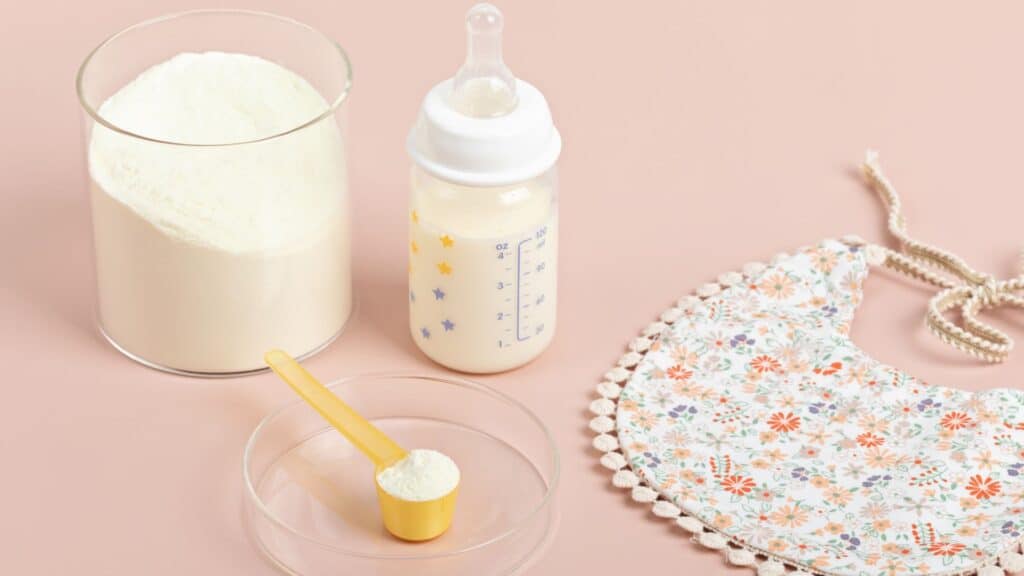
A Brief History of Similac
Infant formula has come a long way since its inception, and Similac, a leading brand in the industry, has been at the forefront of innovations and advancements in the field. This summary provides an overview of the history and evolution of Similac infant formula, as outlined in the document from Abbott Nutrition.
The journey of Similac began in 1925 with the development of a protein-rich powdered milk when it was first introduced on a ship by a doctor who wanted to provide an alternative source of nutrition other than breast milk. Over the years, Similac has continued to refine and improve its formula, always striving to meet the ever-changing nutritional needs of infants.
In 1951, Similac Concentrated Liquid became first available in a form other than powdered formula. Then in 1959, the company manufactured the first Similac Iron-fortified baby formula to solve the widespread problem of anemia in babies fed exclusively with infant formula.
In the 1950s and 1960s, the focus shifted to understanding the role of essential fatty acids in infant nutrition. This research led to incorporating vegetable oil in Similac formulas, balancing linoleic and linolenic acids to support brain and vision development.
A soy-protein isolate infant formula was released in 1966, which was introduced to meet the needs of infants when it comes to powdered formula. As the understanding of human milk composition grew, the 1980s and 1990s brought significant advancements in infant formula science. Similac was the first to introduce formulas containing nucleotides essential for the immune system and overall growth and development.
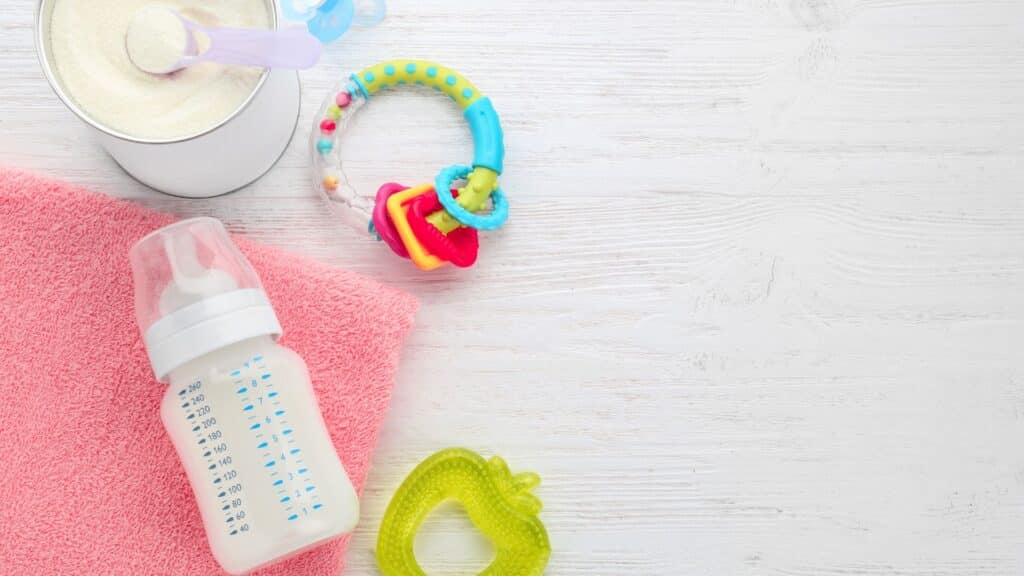
Similac then updated its infant formula packaging from 32-ounce infant formula cans to 1-quart plastic Similac infant formula containers in the 1990s. These packaging options are considered convenient for parents and reusable, which makes infant formula packaging safe for the environment.
In 1994, Similac released its first infant formula designed specifically for premature infants after getting discharged from the hospital. In the early 2000s, Similac focused on the importance of prebiotics and probiotics for digestive health. They launched formulas containing a prebiotic blend that supported the growth of beneficial gut bacteria, promoting a healthy digestive system and immune function.
Abbott Laboratories created the first certified USDA organic infant formula in 2006, produced by a significant formula brand. Similac produced its first infant formula in 2008, which included a blend of prebiotics, carotenoids, and nucleotides commonly found in breast milk.
Abbott Laboratories then provided Similac Human Milk Fortifier Concentrated Liquid Infant Formula in 2013 as a nutritional supplement for breast milk. Every child’s healthcare provider commonly uses it as a breast milk supplement for premature infants. Additionally, this infant formula is also used in NICUs in hospitals across the country.
Similac Infant Formula celebrated its 90 years of excellence in 2015 in terms of infant nutrition [1]. Throughout its history, Similac has been dedicated to providing optimal infant nutrition by continuously researching, developing, and improving its formulas. With a deep understanding of the unique nutritional needs of infants and a commitment to innovation, Similac remains a trusted choice for parents seeking high-quality baby formula to support their baby’s growth and development.
Similac Recall Class Action Lawsuit Filed Over Contaminated Infant Formula
As we’ve explored the rich history of Similac and its commitment to providing optimal nutrition for infants, it’s essential to address a recent development involving the brand. A class-action lawsuit has been filed against Abbott Nutrition, the parent company of Similac, over contaminated infant formula. The lawsuit comes after multiple reports of infant illness were linked to the consumption of Similac 360 Total Care and other Abbott Nutrition products.
Similac, a household name in baby formula, has long been recognized for its efforts to emulate the nutritional composition of breast milk. However, the recent recall raises concerns about the safety and quality of the products, as some batches of Similac 360 Total Care were found to be contaminated, leading to infant illness and poor feeding.
Parents who have relied on Similac and other Abbott Nutrition products for their infants’ nutrition are understandably distressed by the recall. As a brand that has invested in research and development to create a baby formula that closely resembles breast milk, the contamination issue is a significant setback. The class-action lawsuit filed against Abbott Nutrition highlights the importance of stringent quality control measures to ensure that products meant for vulnerable infants are safe and free from contaminants.
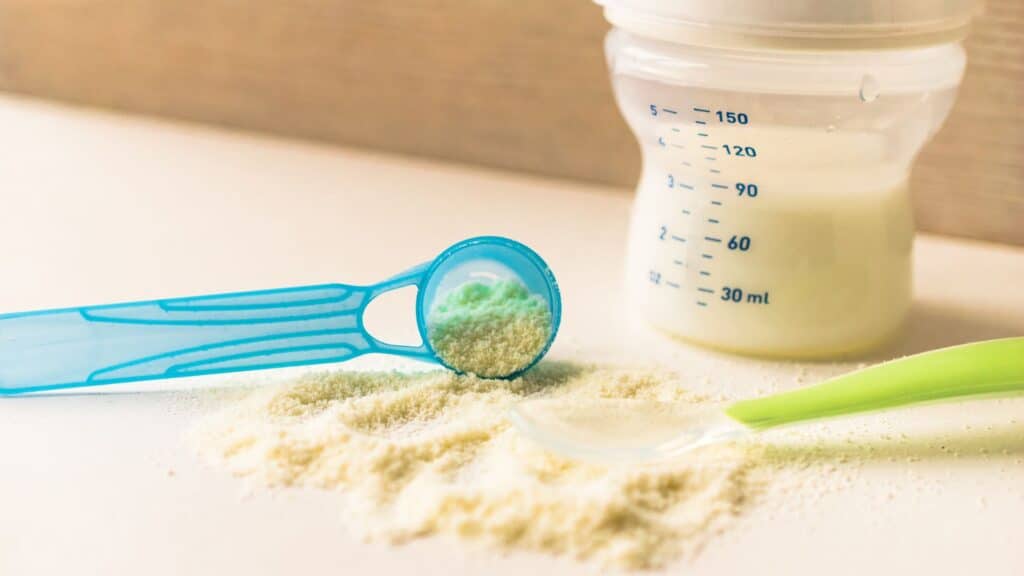
The lawsuit’s primary objective is to seek compensation for the families affected by the contaminated formula and to hold Abbott Nutrition accountable for the distress and potential harm caused to the infants. The recall serves as a stark reminder that, while infant formula companies strive to create products that closely mimic the nutritional benefits of breast milk, the safety and quality of these products should always be a top priority.
In light of the Similac recall, parents and caregivers must be vigilant when purchasing and using infant formula. Ensuring they stay informed about product recalls and potential contamination issues can help protect their infants’ health and well-being. It is also a reminder for the companies involved in producing infant formula to prioritize the safety and well-being of their customers and uphold the highest quality standards for their products.
Understanding the Powdered Infant Formula Products That Have Been Recalled
Abbott Laboratories, the manufacturer of Similac 360 Total Care, has recalled particular powdered baby formula products produced at its Sturgis facility in Michigan. The FDA recommends consumers to read the lot code, a multidigit number found on the bottom of a Similac baby formula container.
It’s highly advisable not to consume Similac Alimentum and Similac Elecare if the first two digits of the code are 22 through 37 and if the code on the container contains K8, SH, or Z2. It’s also advisable not to consume the Similac baby formula products if the expiration date indicates 4-1-2022 (APR 2022) or later.
The FDA is coordinating with Abbott Laboratories to better assess how the recall impacts alimentum to understand the recall capacity of other Abbott laboratories that produce some of the impacted brands. They are also working with Abbott Laboratories when it comes to voluntary recall as well as the safe resumption of Similac production at the Sturgis, Michigan facility. As Abbott Laboratories is still initiating its baby formula recall, FDA highly focuses their attention to reaching out to other baby formula manufacturers to learn about their capacity and other potential impacts that they may encounter.
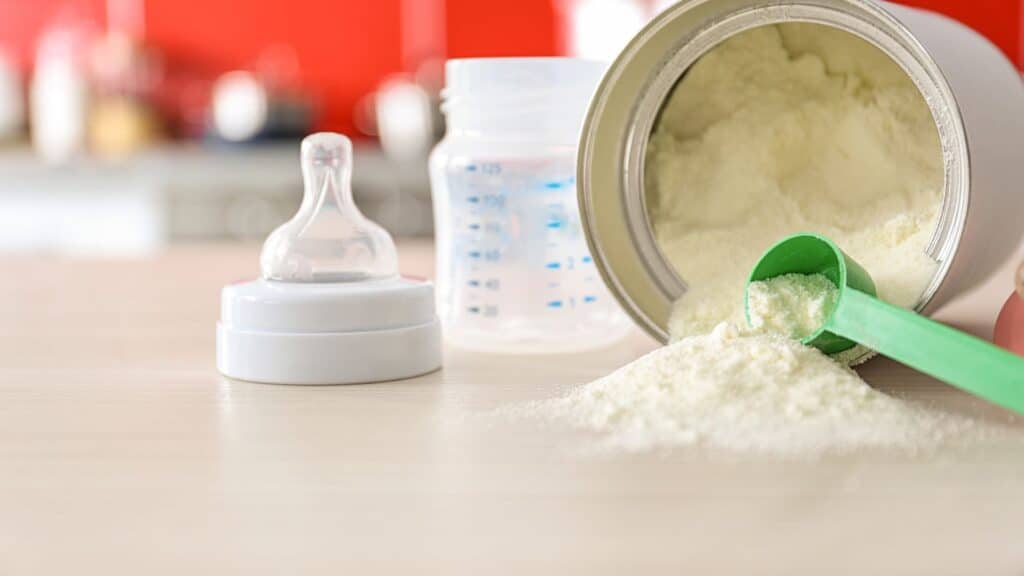
The Importance of Staying Informed About Product Recalls
Product recalls, especially those involving infant formula, can significantly impact the health and well-being of our little ones. As responsible caregivers, we must prioritize staying up-to-date with such developments to ensure the safety of the infants in our care.
Product recalls may be issued for various reasons, including manufacturing defects, contamination, or incorrect labeling. For infant formula, even minor errors in production can have serious consequences for the health of a baby who is entirely dependent on the formula for nutrition and growth. Consequently, being aware of any recalls related to the products we use is crucial to safeguarding the well-being of our infants.
So, how can we stay informed about product recalls? Here are some practical steps that you can follow:
- Sign up for recall alerts: Many government agencies, such as the U.S. Food and Drug Administration (FDA) and the Consumer Product Safety Commission (CPSC), offer email notifications for product recalls. Subscribing to these alerts will ensure that you receive timely updates on any recalls related to regular formula or other products you use.
- Follow the news: Regularly checking the news online and offline can help you stay informed about any recent recalls. Many news outlets prioritize reporting on product recalls, especially when it concerns the safety of infants and young children. Following the news will help you determine which products may contain harmful bacteria and which do not.
- Monitor social media: Companies often use social media platforms to communicate important information, including product recalls, to consumers. Following the ready-to-feed formula brand or manufacturer on social media can keep you updated on any developments or announcements.
- Consult your pediatrician: Your pediatrician is an excellent resource for staying informed about product recalls and safety concerns. They can guide on any issues that may affect the infant formula you’re using or recommend alternative options if needed, especially if you’re worried about harmful bacteria contamination.
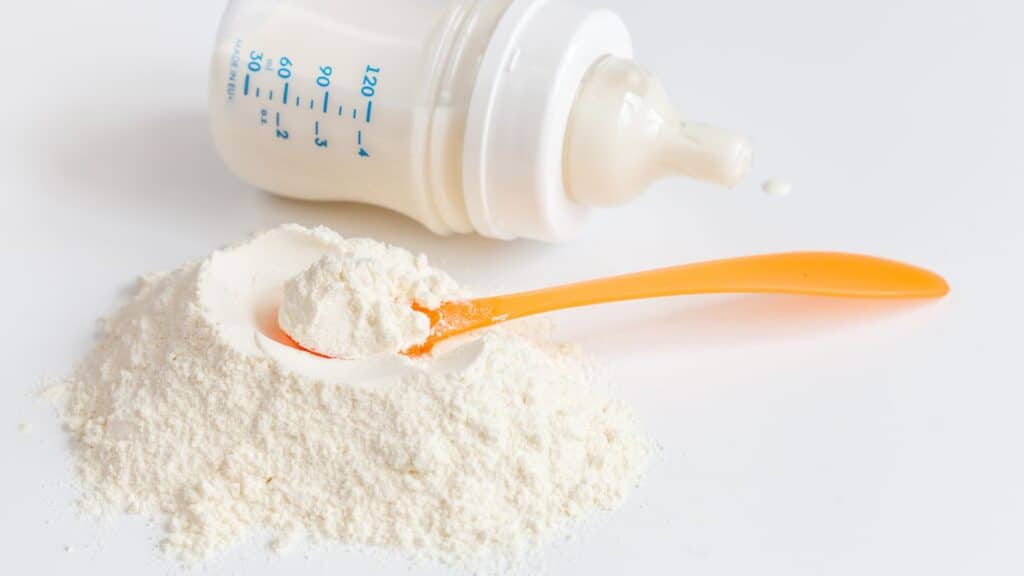
Different Ways to Adapt to the Baby Formula Recall Issues
Having established the importance of staying informed about product recalls, especially when it comes to infant formula, we now turn our attention to adapting to these recall issues. As parents and caregivers, it is crucial to be prepared for such situations and plan to ensure that our babies continue receiving the nourishment they need. Let’s discuss different ways to adapt to baby formula recall issues and minimize the impact on your infant’s health and well-being.
- Stock up on alternative formulas: In the event of a baby formula recall, it’s essential to have a backup plan. Research and identify alternative formulas that are suitable for your baby’s needs and preferences. Stock up on a small supply to have on hand in case your preferred baby formula is affected by a recall. Consult your pediatrician for recommendations, and be prepared to transition your baby to the new formula if necessary.
- Consider breastfeeding or breast milk donations: If you can breastfeed, a formula recall can serve as an opportunity to consider nursing your baby, even if only temporarily. Breast milk provides optimal nutrition and can be a viable alternative to formula. If you’re unable to breastfeed or need additional support, changing feeding practices by exploring options for obtaining donated breast milk from reputable sources, such as milk banks or milk-sharing networks. Always ensure the donor’s milk has been properly screened and processed for safety.
- Stay in close communication with your pediatrician: Your pediatrician is a valuable resource for guidance and support during a formula recall. They can help you identify alternative formulas, address concerns or questions, and monitor your baby’s health and development throughout the transition process.
- Practice patience and flexibility: Adapting to baby formula recall issues can be challenging for parents and infants. Be prepared for potential difficulties during the transition, such as changes in feeding patterns or digestive problems. Approach the situation with patience and flexibility, and seek support from your pediatrician, family, or friends as needed.
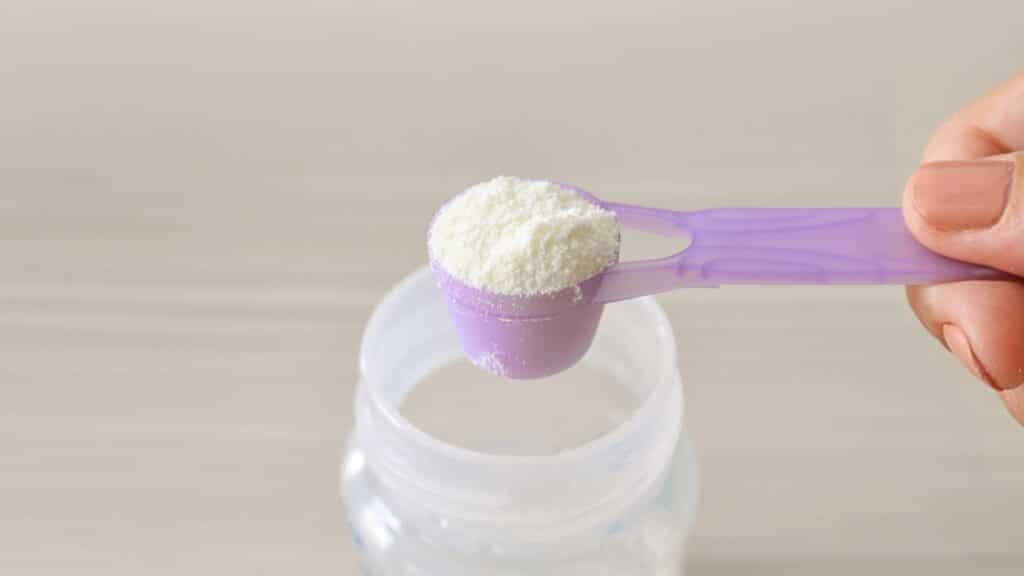
Conclusion
Similac has long been recognized as a trusted brand in the infant formula market, thanks to its commitment to innovation, understanding of infant nutrition, and dedication to providing high-quality products. This comprehensive guide has aimed to provide valuable insights into the history, nutritional components, types, and proper preparation of Similac infant formulas, as well as the importance of staying informed about Abbott product recalls.
As parents and caregivers, our primary goal is to ensure the health and well-being of our infants. Choosing the right infant formula is crucial in this journey, and Similac has consistently proven to be a reliable choice for millions of families worldwide. By staying informed, consulting with healthcare professionals, and understanding the unique needs of our infants, we can make the best possible decisions for their nutrition and growth. Thus, ensuring your baby’s eye development and immune support.
Ultimately, Similac’s longstanding reputation and comprehensive range of infant formulas cater to the diverse needs of infants, providing a strong foundation for their development. As we continue to prioritize the well-being of our little ones, we can trust Similac to remain a steadfast partner in nurturing the next generation.
If you have any questions, please feel free to leave a comment below and we’ll get back to you as soon as possible.



